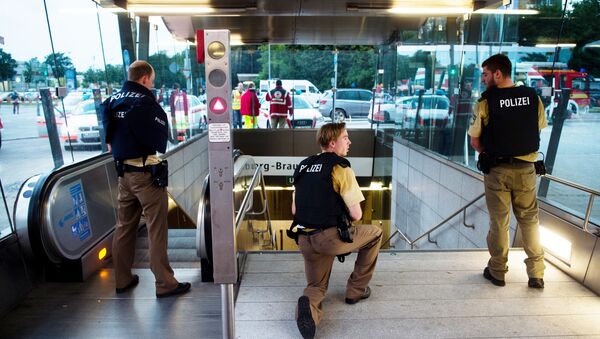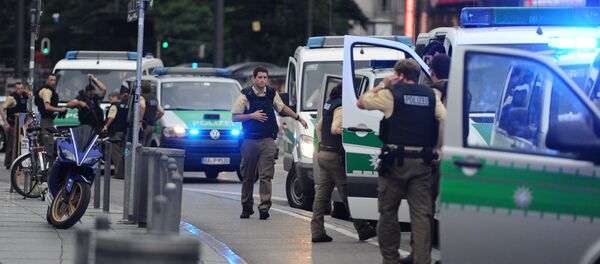"The fact that radical groups are active in Germany does not come as a surprise to anyone. This is a sad fact. Like Israel, Germany has become a permanent target for terrorists," deputy director of the Center for German Studies at the Russian Academy of Sciences noted.
This assessment appears to be true, considering that the country has been rocked by two attacks in less than a week. On Monday, Riaz Khan Ahmadzai, a 17-year-old asylum-seeker from Afghanistan who was armed with an axe and a knife, wounded five passengers on a commuter train near the city of Würzburg, Bavaria. Daesh claimed responsibility for the attack.
On Friday, an 18-year-old lone gunman, identified as a dual German-Iranian national, killed nine people and injured over a dozen others at a shopping mall in Munich, Bavaria's capital. He then committed suicide. His motives, according to the police, are unclear, but Daesh supporters have praised the attack on social media.
Most likely, the perpetrators were "migrants pumped with Islamism, who decided to show their loyalty to Daesh." Initial reports suggested that there were three shooters, but Munich police chief Hubertus Andrae later told reporters that the gunman acted alone.
The latest attacks, for Kamkin, a part of a larger trend.
"Germany is facing an overt threat of Islamic terrorism from the Middle East," the analyst said. The country "has found itself in a completely new reality that it will have to live in the coming decades. It will not be able to simply cut itself off from these issues. [German authorities] will also not be able to push all newcomers out since such an initiative will go against European values."
Europe has been overwhelmed by a massive wave of refugees from the Middle East and northern Africa on a scale unseen since World War II. Germany has been the top destination for migrants. In 2015 alone, the country welcomed more than 1 million asylum seekers.
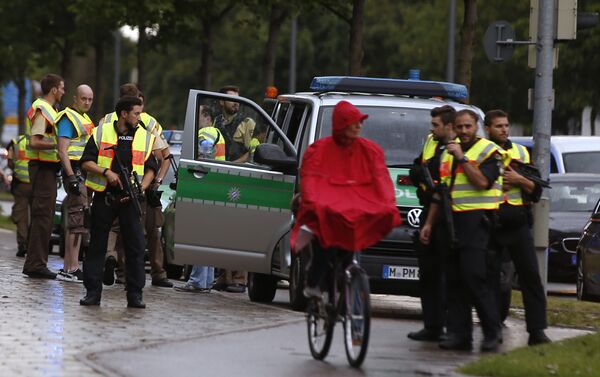
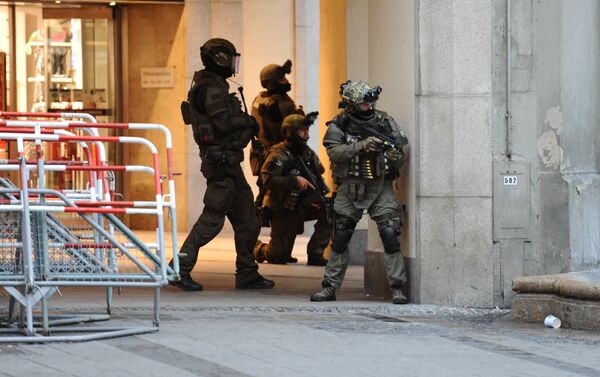
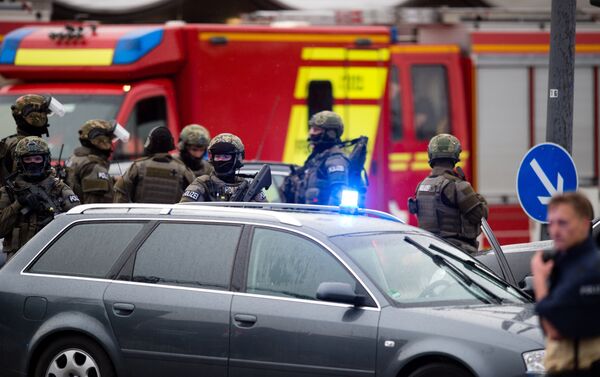
German Chancellor Angela Merkel has long been under pressure to review its open door policy on refugees and the latest attacks will not make her job easier. Meanwhile Europe will continue to "descend into chaos, unless Europeans adopt tougher migration laws," Kamkin noted.
The Munich shooting comes eight days after the July 14 Nice attack, in which a truck rammed into a large crowd celebrating Bastille Day in the French city killing at least 84 people, including children, and injuring hundreds of others.

